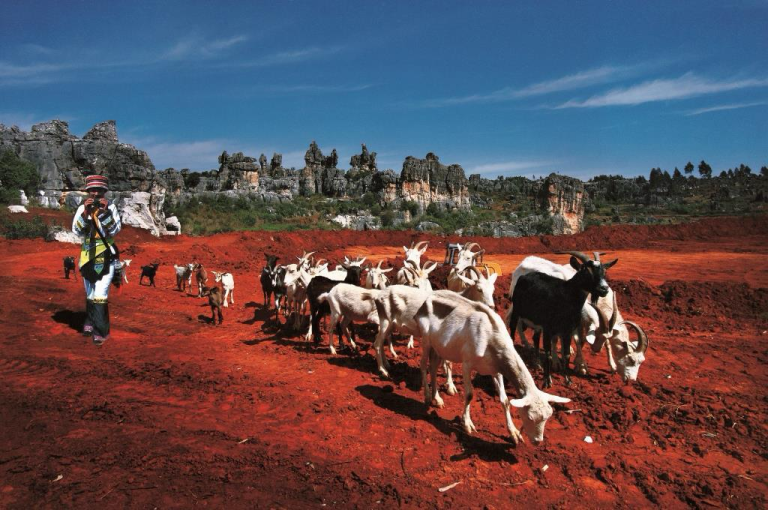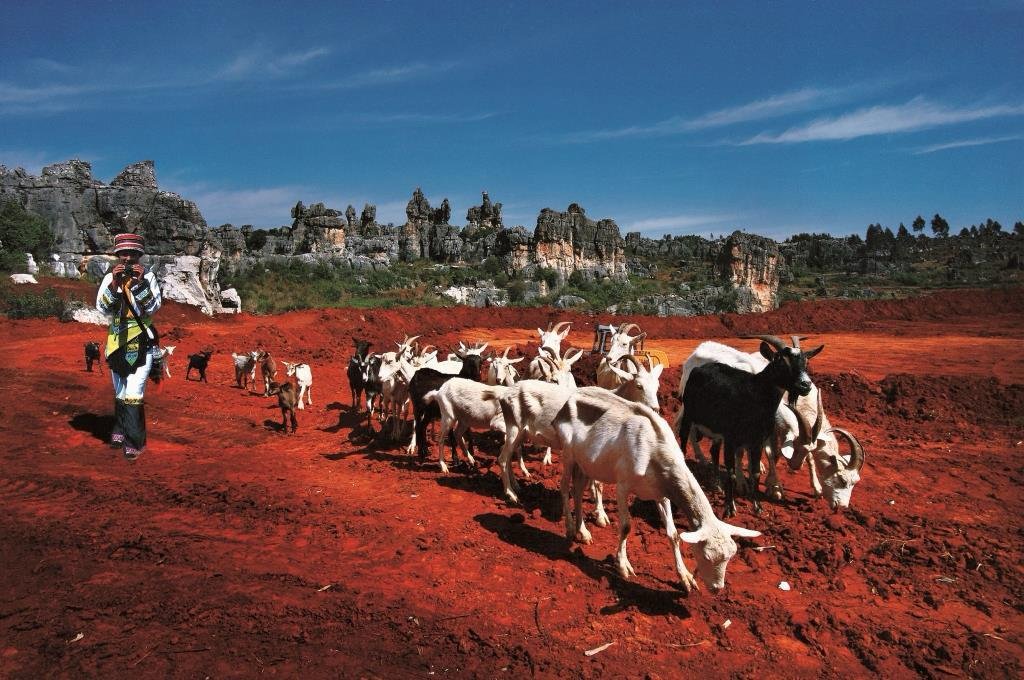
 The final panel session of The 5th Asian Trans-Disciplinary Karst Conference was held on Wednesday, August 14, 2024, at the 5th-floor Auditorium, Graduate School, Universitas Gadjah Mada. One of the speakers, Prof. Zhang Yuanhai, a researcher at the International Research Center of Karst, China, presented on the contribution of karst biodiversity to the SDGs. His presentation was based on case studies from seven UNESCO Global Geoparks located in Southern China, namely Shilin, Xingwen, Zhijindong Cave, Leye-Fengshan, Xiangxi, Xingyi, and Enshi Grand Canyon-Tenglong Cave.
The final panel session of The 5th Asian Trans-Disciplinary Karst Conference was held on Wednesday, August 14, 2024, at the 5th-floor Auditorium, Graduate School, Universitas Gadjah Mada. One of the speakers, Prof. Zhang Yuanhai, a researcher at the International Research Center of Karst, China, presented on the contribution of karst biodiversity to the SDGs. His presentation was based on case studies from seven UNESCO Global Geoparks located in Southern China, namely Shilin, Xingwen, Zhijindong Cave, Leye-Fengshan, Xiangxi, Xingyi, and Enshi Grand Canyon-Tenglong Cave.
Prof. Zhang categorized four key contributions to the SDGs: contributions to education, contributions to industrial development, contributions to the preservation of intangible cultural heritage, and contributions to ecological environmental conservation. The contribution to education is demonstrated by the large number of students, researchers, and the public who visit the Geoparks to study and conduct research. According to Prof. Zhang, the biodiversity in these karst Geoparks also contributes to industrial development by attracting tourists and promoting the branding of UNESCO Global Geoparks.
“The existence of Geoparks has raised public awareness of sustainable development and ecological protection in line with SDG 13 (climate action) and SDG 15 (life on land). Many environmental education programs in line with SDG 4 (quality education) are held in the Geoparks,” said Prof. Zhang. One of the participants asked Prof. Zhang about the potential negative impacts of industrial contributions, specifically whether industrial activities could harm cultural heritage sites. Prof. Zhang responded by providing an example of one Geopark that has successfully protected cultural heritage sites within safe areas.
Tourism activities in the Geoparks have created job opportunities and provided economic income for local communities, aligning with SDG 1 (no poverty) and SDG 8 (decent work and economic growth). Thousands of hectares of eco-friendly agriculture and poultry farming produce nearly 30 million chickens, significantly contributing to SDG 2 (zero hunger). In one of the Geoparks, Xinglin, there is a traditional Chinese medicine industry that supports SDG 3 (good health and well-being).
Keywords: SDG 1: No Poverty, SDG 2: Zero Hunger, SDG 3: Good Health and Well-being, SDG 4: Quality Education, SDG 8: Decent Work and Economic Growth, SDG 13: Climate Action, SDG 15: Life on Land
Author: Asti Rahmaningrum
